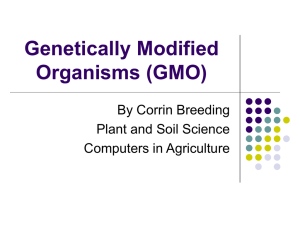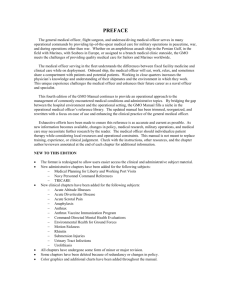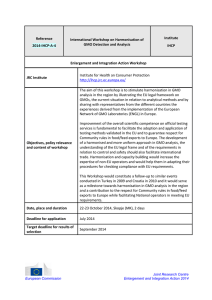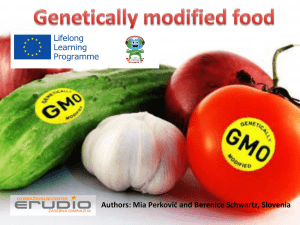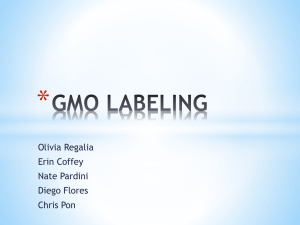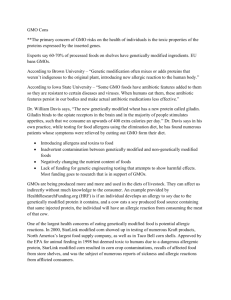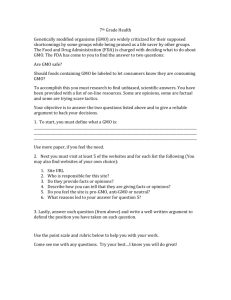Informative Speech Outline - Holly Mixon Online Speech Portfolio
advertisement
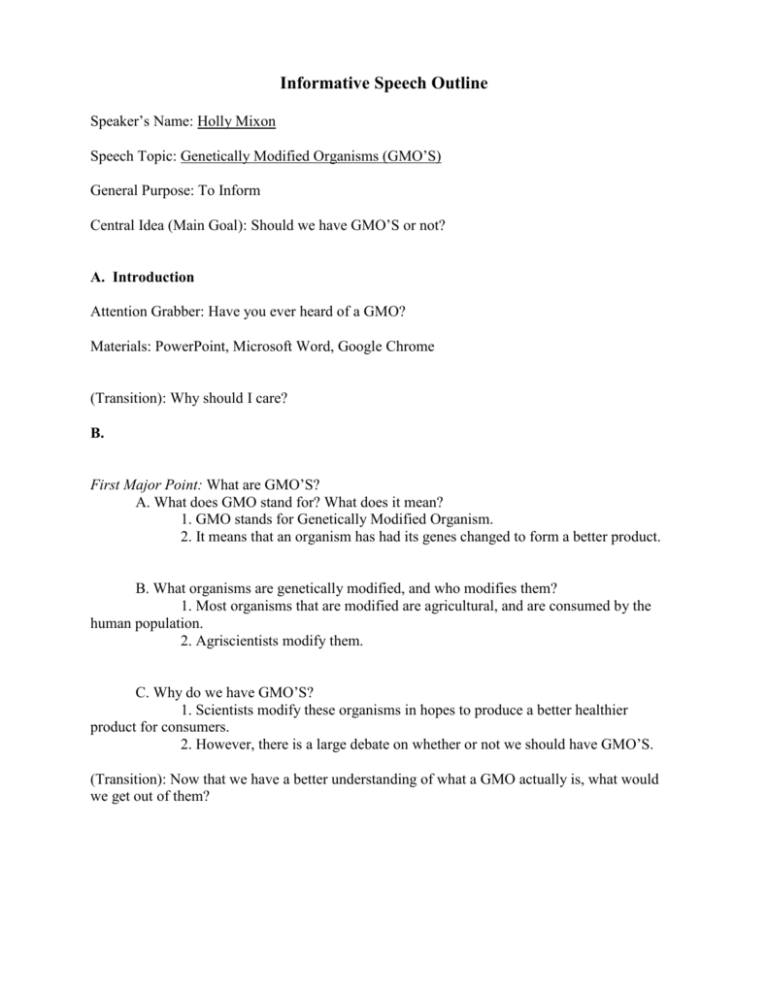
Informative Speech Outline Speaker’s Name: Holly Mixon Speech Topic: Genetically Modified Organisms (GMO’S) General Purpose: To Inform Central Idea (Main Goal): Should we have GMO’S or not? A. Introduction Attention Grabber: Have you ever heard of a GMO? Materials: PowerPoint, Microsoft Word, Google Chrome (Transition): Why should I care? B. First Major Point: What are GMO’S? A. What does GMO stand for? What does it mean? 1. GMO stands for Genetically Modified Organism. 2. It means that an organism has had its genes changed to form a better product. B. What organisms are genetically modified, and who modifies them? 1. Most organisms that are modified are agricultural, and are consumed by the human population. 2. Agriscientists modify them. C. Why do we have GMO’S? 1. Scientists modify these organisms in hopes to produce a better healthier product for consumers. 2. However, there is a large debate on whether or not we should have GMO’S. (Transition): Now that we have a better understanding of what a GMO actually is, what would we get out of them? Second Major Point: Benefits A. Why some feel that we need GM foods. 1. With an ever increasing global population, massive 3rd world hunger, and with an estimation that a child dies for every two seconds worldwide from starvation; this does not even take into account the number of people who are mal and undernourished, there is a great promise in the use of this technology to benefit not only the farmers, but also societies worldwide 2. B. Environmental benefits 1. Soil salinity has become a major problem in all agriculture. This has made crops less able to grow and in some cases unable to grow at all. 2. Thus we need to research the possibility of using the genes of salt tolerant plants species (eg: mangrove) in our agricultural crops C. Human Benefits 1. Food can now be fortified with iron through genetic modification, which may help contain a global health crisis. Scientists have also figured out ways to introduce vitamin A into rice, creating a new strain of “golden rice” that could help prevent blindness in millions of poor children. 2. In other words, if scientists are allowed to genetically modify foods, then they can insert helpful vitamins and minerals into foods for the malnourished population. (Transition): Although there are numerous benefits to GMO’S, there are also some negative effects. Third Major Point: Negative effects A. Why some feel that we need to get rid of GMO’S 1. Many participants warned of the dangers of GMO crops, including perceived decreased nutritional value, greater amounts of diseases in consumers only since the introduction of GMOs, and chemical harm to the environment. 2. B. Economic Negative Effects 1. Even though it doesn’t cost a large amount to actually genetically modify the organisms, many place require the labeling of genetically modified food, and that is where the large portion of the cost comes from. 2. Those extra expenses would then likely be passed on to consumers. Washington’s state budget office estimated it would cost $3.4 million over six years for the state to enforce and administer the labeling requirement that voters considered, and rejected, last year. C. Human Negative Effects 1. There is concern that inserting an exotic gene into a plant could cause it to produce toxins at higher levels that could be dangerous to humans. 2. Inserting new genes into previously harmless foods, could cause a gene to be inserted that could cause an allergic reaction. (Transition): We’ve looked at GMO’S from many angles, so what are they again? C. Conclusion Signal the End: In conclusion there are many different opinions on GMO’S and many different aspects of them. Summarize your Ideas: Some people feel GMO’S are helpful and some people feel they are harmful. Even though there are many different opinions, they many benefits and many negative effects. Did you form an opinion? (That was rhetorical question.) D. Bibliography (MLA or APA): Full Citation 1. http://classes.soe.ucsc.edu/cmpe080e/Spring05/projects/gmo/benefits.htm 2. http://www.globalization101.org/highly-beneficial-increased-yield-and-hardiness/ 3. http://www.usda.gov/documents/BIOTECHNOLOGY.pdf 4. http://www.huffingtonpost.com/2014/03/13/gmo-labels_n_4956995.html E. Visual Aids: PowerPoint: Number of Slides 7____________ Prezi Other:________________________________
